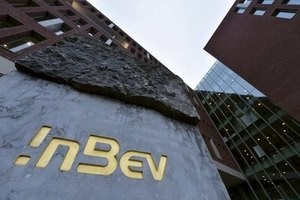Investing.com -- If at first you don’t succeed - try, try again.
Anheuser Busch Inbev (BR:ABI), the brewer of everything from Budweiser to Stella Artois and Beck’s, has restarted the IPO process for its Asian business, according to The Wall Street Journal.
The news was enough to lift the stock 1.5% in early trading in Europe to its highest in over a month. That’s on a day when most markets were in cautious mood in the aftermath of the attacks on Saudi Arabia and ahead of the Federal Reserve’s two-day meeting.
By 5:15 AM ET (0915 GMT), the STOXX 600 was down less than 0.1%, as was the German DAX. The U.K. FTSE 100 was up 0.3%, largely a reflection of sterling's latest drop.
The Asian IPO is set to be a trimmed-down affair: after failing to agree with investors on valuation the first time around, it stripped out the mature Australian business and sold it to Japan’s Asahi for $11.3 billion.
What remains is a smaller, but faster-growing and more China-focused entity. According to the WSJ, the brewer is now targeting an overall valuation of $45.6 billion to $50.7 billion. The mid-point of that range is around 35 times next year’s estimated earnings, the paper adds.
The IPO volume could be as much as $4.84 billion. Even after the surgery to cut out the Australian ops, that could still leave the deal as the world’s second-biggest IPO this year after Uber Technologies (NYSE:UBER). (Competition for that title from WeWork’s parent may be fading after the We Company reportedly delayed its prospective IPO for at least a month.)
Even the new valuation might seem ambitious to some. Prospective investors are being asked to bet on what is now a much higher-beta project where the prospects of faster sales growth have to be weighed against Chinese macroeconomic risk – specifically in the shape of foreign exchange risk. After four years of diligently-managed exchange rate stability, China has let the yuan slide by over 3% this year against the dollar. Where it might go to in the event of a fully-fledged trade war and a Chinese credit crunch is far from certain – even if Beijing does have a strong vested interest in preventing a further yuan depreciation in light of Chinese corporates high dollar indebtedness.
However, anything that reduces the company's debt burden is welcome to AB Inbev's management - and, apparently, its shareholders too.
